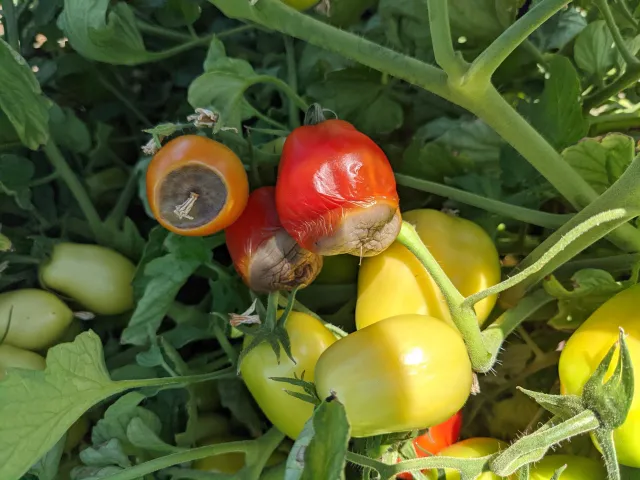Debunking Pest Myths
When trying to solve a pest or plant problem, it is likely that you will come across a wide variety of solutions online, passed down through the generations, or shared on social media. While there is plenty of reliable and science-based information out there, such as on the UC IPM website, there are also a lot of myths and unfounded recommendations.
Popular pest myths promote solutions that are often too good to be true, or miracle cure-all solutions. Many originate from exaggerated truths or personal anecdotes. Relying on myths to control pests can be a waste of time and money. If you really want to get rid of that pest, use what has proven to be effective–even if it requires you to make some changes!
In April, UC IPM hosted a webinar where we debunked common pest myths and learned of new myths that are popular online. Below are some of the debunked statements and information to learn more. Watch the webinar to learn about more pest myths.
Debunked
Opossums will not manage your tick problem; in fact they may give you new problems to manage!
Ticks are not a preferred food source for opossums so you shouldn’t attract them to your yard for tick control. Opossums can carry and spread a variety of important human diseases, and they can bring a variety of pests (like fleas) into your yard.
Marigolds won’t ward off garden pests.
While these flowers can be a pretty addition to your vegetable garden, they do not repel garden pests like aphids. However, these flowers may be less susceptible to feeding by rabbits and deer and they can help attract beneficial insects to your garden.

Mosquitofish can be an effective way to manage mosquitoes, but they can eat tadpoles.
Mosquitofish are a non-native fish species that are used to control mosquito larvae in man-made water features as an alternative to chemical insecticides. But like many other fish, they can also consume amphibians like tadpoles. Mosquitofish should not be released into natural waterways and before releasing into a swimming pool, fountain, or other man-made water feature, you should consult with your local Mosquito and Vector Control Agency. Careful and appropriate use of mosquitofish to control mosquitoes in man-made water features is unlikely to significantly harm local amphibian or beneficial insect populations.
We don’t eat spiders in our sleep.
Believe it or not, spiders are not out to get you. The few spiders that may live in our homes often stay to themselves, avoiding contact with us. So they certainly don’t want to be crawling into your bed, let alone your mouth, at night.
Epsom salts are not a miracle solution to problems in the garden.
Epsom salts (magnesium sulfate) do not prevent blossom end rot or repel pests like slugs. And they don’t make roses or other plants any healthier, unless you have a magnesium deficiency that has been confirmed by a soil test. Since magnesium is only needed by plants in small quantities, excessive use of Epsom salts can burn foliage and lead to an imbalance of other essential nutrients.

Nothing will repel rats, mice, or gophers.
Predator scent or urine, ultrasonic devices, dryer sheets, soap bars, mothballs, castor bean plants, etc. do not work to repel rodents from your home, garden, or other locations. Rodents will quickly become accustomed to these sounds or smells and continue to cause damage. Focus on what actually does work for rodent control, such as sealing gaps larger than ¼ inch so mice and rats can’t enter or using kill traps for gophers.
Potato chunks and cinnamon won’t relieve you of fungus gnats.
The simple solution to fungus gnats in potted plants and houseplants is to reduce excess moisture in the soil. Water plants from the bottom using saucers and let the soil dry out in-between watering. Potato chunks can be placed on the soil to monitor for fungus gnat larvae, but they do not repel them.
Want to learn more?
For help finding science-based information about other myths, try searching the statement followed by “site:edu” (ex. Epsom salt roses site:edu) to find science-based, university extension publications that discuss the topic.
For help managing pests, visit the UC IPM website at ipm.ucanr.edu.
And remember, if it sounds too good to be true, it probably is!
